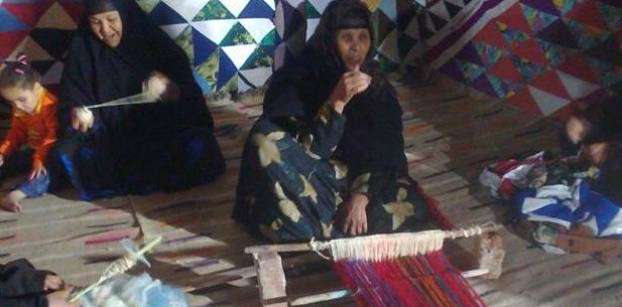Latest NEWS
- Aswat Masriya, the last word
- Roundup of Egypt's press headlines on March 15, 2017
- Roundup of Egypt's press headlines on March 14, 2017
- Former Egyptian President Hosni Mubarak to be released: lawyer
- Roundup of Egypt's press headlines on March 13, 2017
- Egypt's capital set to grow by half a million in 2017
- Egypt's wheat reserves to double with start of harvest -supply min
- Roundup of Egypt's press headlines on March 12, 2017
Human trafficking, child marriage and beggary: study addresses Egyptian women’s woes
CAIRO, Mar 3 (Aswat Masriya) - An Egyptian women's advocacy group said Wednesday that 45 per cent of Egypt's married women work instead of their husbands, with domestic work ranking the highest among jobs carried out by those women.
The Center for Egyptian Women Legal Assistance announced in a conference on Wednesday the results of its study, which was conducted in Feb. 2015.
The study reported that husbands take 59.1 per cent of their working wives' salaries.
Beggary
Using beggary as a means of receiving income comes in second place, after domestic service, constituting 16.4 per cent of the study sample.
Married women also take up positions in both the governmental and non-governmental sectors as well as in businesses, the study shows.
The study said that husbands rely on their wives' salaries for various reasons, the most important of which are them exhibiting "delinquent" behaviour and unemployment.
Prepared by the head of Bayt El Khebra for economic and social consultancy, Hamdy El-Henawy, the study tackled the various methods of women trafficking in Egypt, covering four provinces: Cairo, Kafr el-Sheikh, Fayoum and Daqahliya.
The study addresses various forms of trafficking including sex trafficking. The study sample comprises 1,237 individuals, including men (26.4 per cent) and women (73.6 per cent).
Trafficking signifies the abuse of women in various forms, including the use of violence, exploitation and coercion for the purpose of obtaining monetary or non-monetary value, the study adds.
Working women at times receive lower salaries than working men, with women in the study sample receiving an average salary of EGP 448 compared to EGP 786 for men ($1 = around EGP 7.83).
Child marriage
Of the study sample, 73.1 per cent admitted the presence of child marriages in their provinces, affecting individuals from the age of 10 to 16 years old.
The primary reason behind this type of marriages is usually money, "protecting girls" or both at once.
Meanwhile, 14.5 per cent of women in the sample said they do not receive their inheritance.
The study considered the phenomenon of Female Genital Mutilation (FGM) a form of women trafficking carried out by doctors as well as women who accept undergoing FGM in return for money.
From the study sample, 57.3 per cent said they either underwent FGM or plan on doing the same for their daughters.
Prostitution
The study also revealed that there were men (1.7 per cent) who abuse their wives by forcing them into practicing prostitution, while 12.9 per cent of subjects said that the practice takes place across Egypt's borders.
The study revealed that 5.9 per cent of married women in the sample were forced into the practice by their husbands.
Subjects were free to reveal information regarding the matter, as some had personal knowledge of such practices; however, the study’s practitioners did not oblige them to reveal the source of their information.
Women were the "most vulnerable" to human trafficking as they are considered "among the weakest groups," especially poor women, El-Henawy said.
Henawy added that the prevailing social culture facilitates women trafficking, and women are subjected to pressures at a young age, which prompts them to accept being "second degree citizens”.
Combating trafficking necessitates changing the social culture that is “unfair" to women and punishing those who commit such a crime, Henawy stated.
(This article was translated into English by Nourhan Fahmy.)











